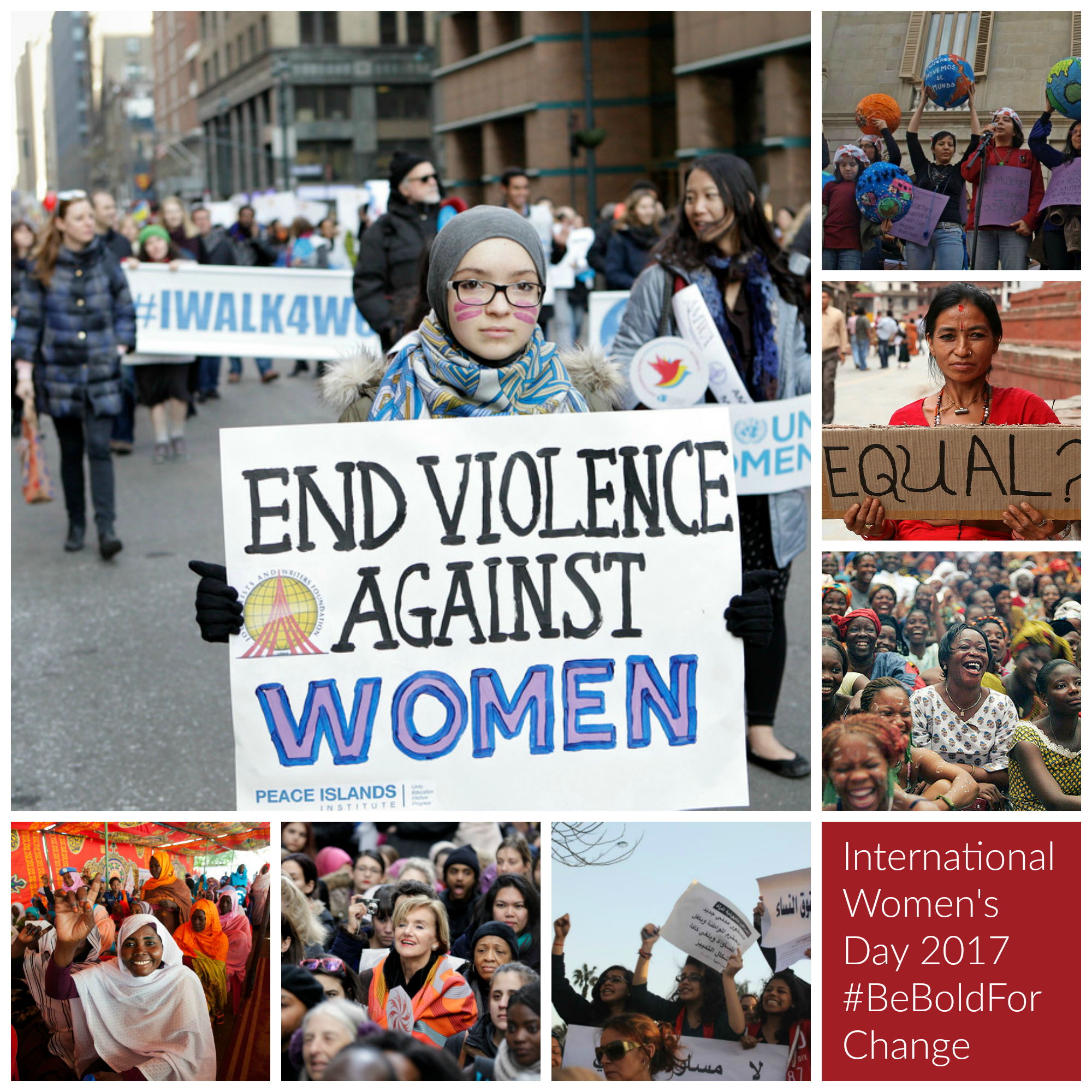
“The story of women’s struggle for equality belongs to no single feminist nor to any one organization but to the collective efforts of all who care about human rights.” ~Gloria Steinem
International Women’s Day commemorates the movement for women’s rights, and was originally called International Working Women’s Day. The earliest observance of a Women’s Day was in New York in 1909, organized by the Socialist Party of America. Over the years, various countries observed a similar day at different times, many in conjunction with strikes, rallies, and other protests in support of increased rights and better conditions for women.
The United Nations began celebrating in International Women’s Day in 1975, International Women’s Year. In 1977, the United Nations General Assembly invited member states to proclaim March 8 as the UN Day for women’s rights and world peace. Many countries currently treat it as an official national holiday with many others (including the U.S.) celebrating it unofficially.
In celebration of International Women’s Day, Nobel Peace Prize Winner Leymah Gbowee visited CSU on Monday. She was the recipient of the 2011 Nobel Peace Prize for her part in ending the Liberian Civil War. “Trained as a trauma counsellor for former child soldiers, as well as the leader of the Women of Liberia Mass Action for Peace movement, Gbowee spoke on her experiences with her part in ending the Liberian Civil War as well as the importance of acceptance and embracing humanity.” At one point during her speech, Gbowee said, “When people say America is divided I say ‘yes indeed,’ and when people ask me if we will find our way back I say ‘yes.’ To be whole again, your country must break down issues on the humanity of those issues.”
The 2017 UN Secretary-General’s Message for International Women’s Day begins, “Women’s rights are human rights. But in these troubled times, as our world becomes more unpredictable and chaotic, the rights of women and girls are being reduced, restricted and reversed.” It goes on to say, “Denying the rights of women and girls is not only wrong in itself; it has a serious social and economic impact that holds us all back. Gender equality has a transformative effect that is essential to fully functioning communities, societies and economies.” It ends with, “On International Women’s Day, let us all pledge to do everything we can to overcome entrenched prejudice, support engagement and activism, and promote gender equality and women’s empowerment.”
Video: a International Women’s Day message from UN Women’s Executive Director